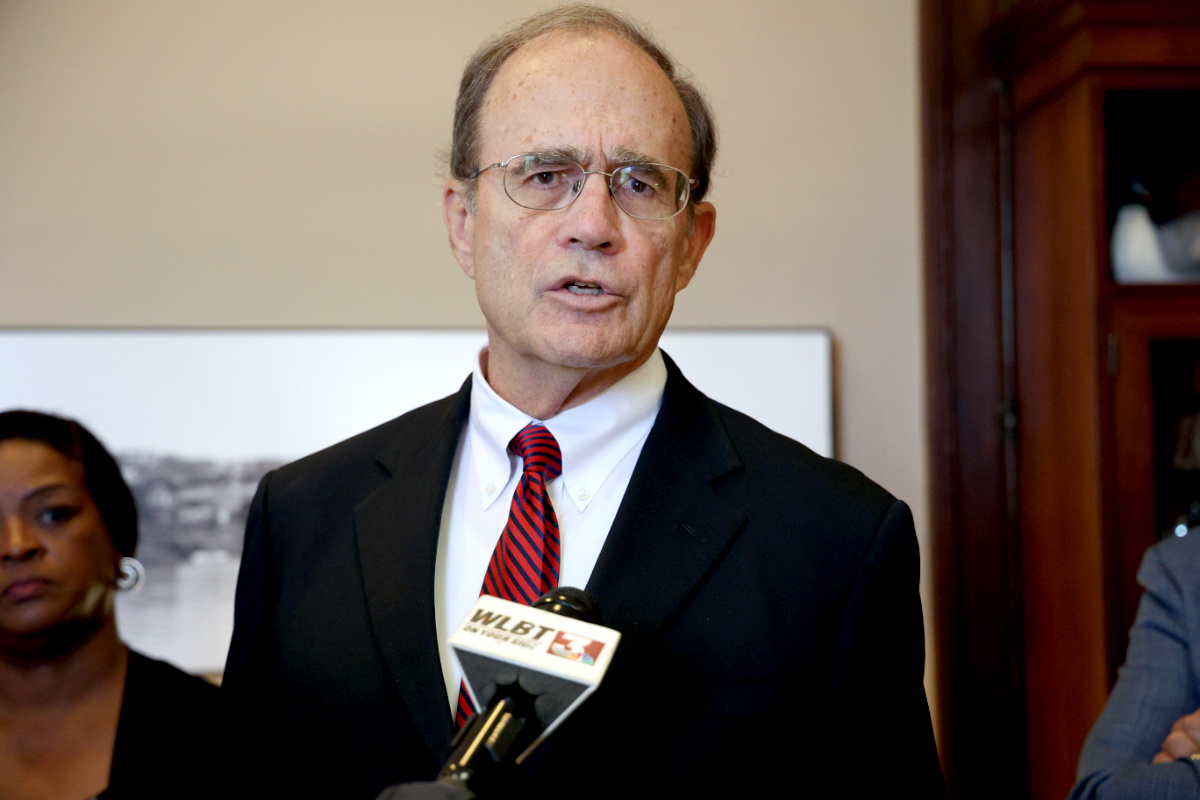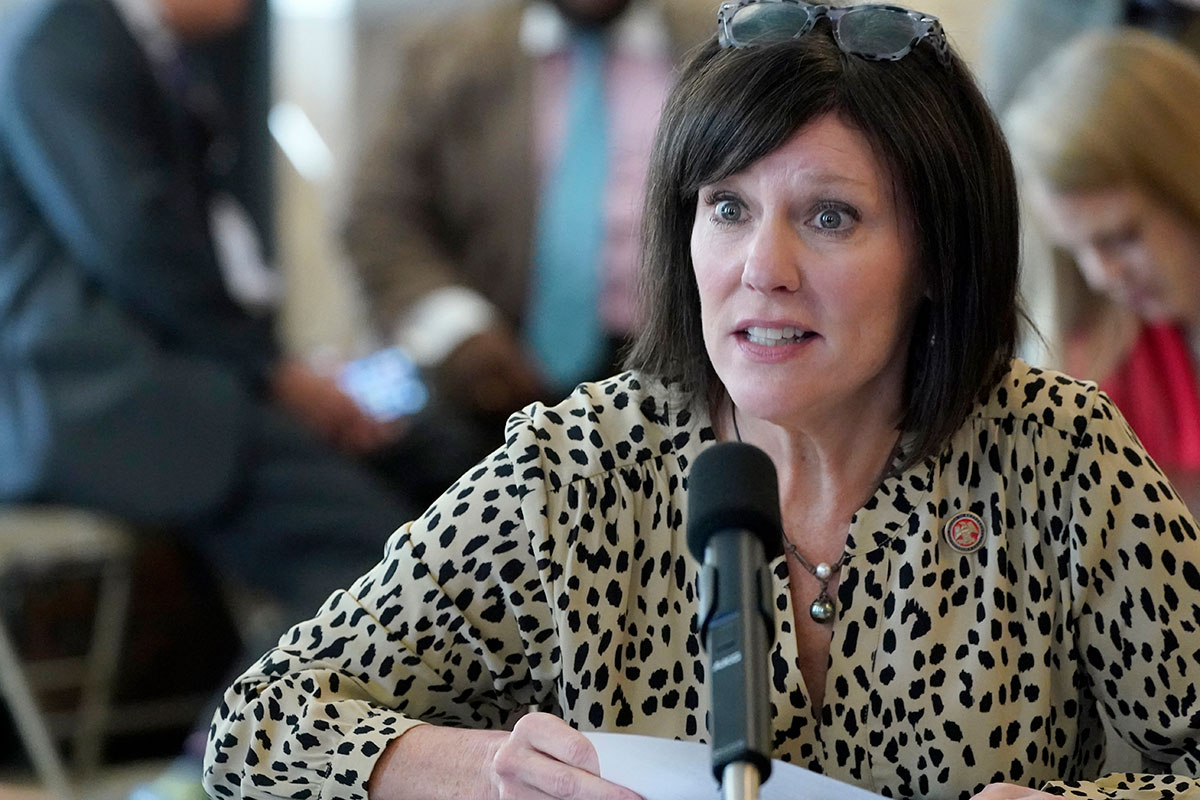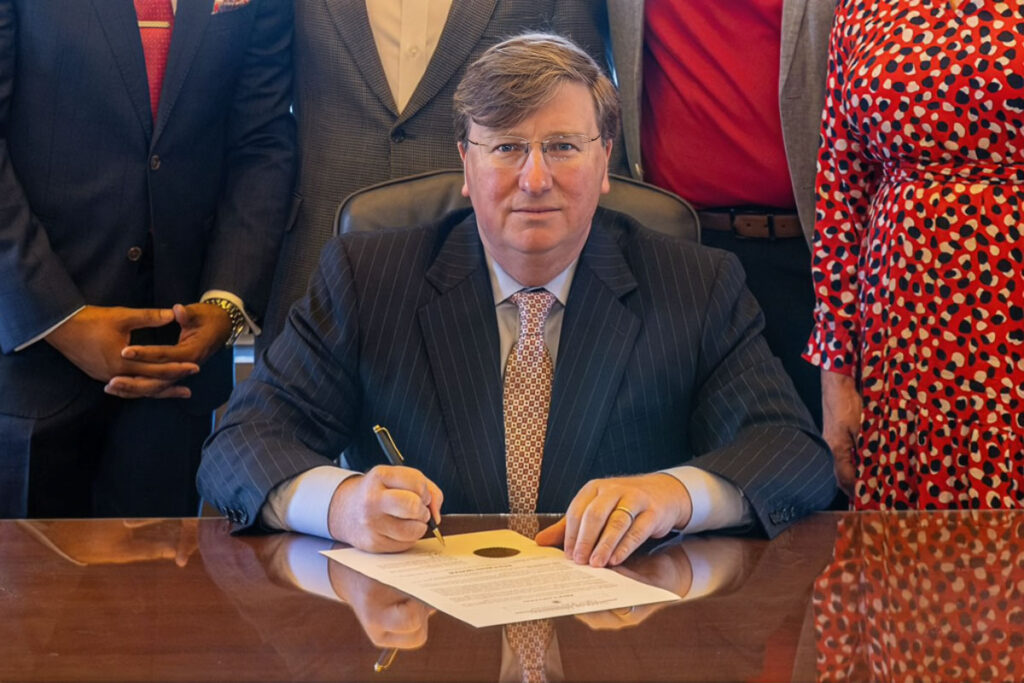New moms who cannot afford private insurance will be eligible for a year of postpartum Medicaid coverage starting in July after Mississippi Gov. Tate Reeves signed Senate Bill 2212 into law without fanfare today. Current Mississippi law only provides for two months of coverage for new mothers after they give birth.
In a statement, Reeves said the bill is about “furthering our new pro-life agenda and delivering the support moms and babies need” and that the bill will “lower barriers for expectant moms to bring new babies into the world and to choose life.”
“I believe continuing to offer care for new moms for up to 12 months after the birth of their baby is the right thing to do,” he added. “This is one more thing that we can do to tip the scales in favor of life. And that has to be our priority.”
Lt. Gov. Delbert Hosemann hailed the move in a tweet this afternoon. “We will always choose life, standing up for our mothers, our children, and the unborn,” he wrote. “Today, Mississippi joins most all other states in the nation in extending healthcare services for new mothers from 60 days to 12 months.”
The Mississippi Free Press reported in 2021 that about 25,000 Mississippians use Medicaid to cover pregnancy.

Reeves signaled support for making Medicaid coverage available to mothers for one year on Feb. 26, but noted that he had not been swayed by the data on its benefits. It is “at best, incomplete and, at worst, often misconstrued and mischaracterized by the ‘more government benefits no matter the costs’ crowd,” he said in February.
Mississippi Rep. Missy McGee, R-Hattiesburg, presented Senate Bill 2212 to the Mississippi House Medicaid Committee two days later on Feb. 28. She said the policy is even more urgent since the U.S. Supreme Court’s ruling last year in Dobbs v. Jackson Women’s Health Organization allowed the state to ban nearly all abortions.
“Women who suffer from physical or mental health issues after giving birth have challenges when it comes to caring for their babies,” McGee said. “The bill also provides a very important, cost-effective approach for delivering care.
“Twelve-month postpartum (care) reduces potential future preterm birth by increasing the spacing of pregnancies and improving the health of moms,” McGee said on Feb. 28. “By providing the year of postpartum care, we prioritize the prevention of premature birth and improving maternal health.”
Since the 2020 COVID-19 public health emergency orders, the federal government has required states to provide such coverage for 12 months. But those orders will expire in May, and without the new law, postpartum coverage in Mississippi would permanently revert back to the previous 60-day limit.
Reeves: ‘I’ve Been Against Medicaid Expansion’
Reeves said in today’s statement that the law will not add more people to the Medicaid rolls.
“I’ve been against Medicaid expansion since it was first proposed by Barack Obama. I still am. And, as what many would call the leading advocate fighting against Obamacare expansion, I have plenty of scars to show for it,” Reeves said in the statement today.
The Republican House Speaker, Philip Gunn, has also long refused to expand Medicaid, which could open the program up to as many as 300,000 more Mississippians who currently make too much for traditional Medicaid but not enough to afford private health insurance or to qualify for federal subsidies.

The Mississippi State Medical Association said in a statement on Jan. 3 that the State’s refusal to expand Medicaid is putting pressure on the hospital system.
“The lack of access to health care for many Mississippians is currently a crisis” that “is getting worse,” the Mississippi State Medical Association said at the time.
The association said hospitals are failing because the State has refused to use federal funds to expand Medicaid, citing a “sizable gap that exists for working Mississippians who cannot afford private insurance, yet whose income is too much to qualify for Mississippi Medicaid.”
Other experts, however, argue that while Medicaid expansion would help, it is only one of a number of policy changes needed to keep rural hospitals afloat. Publicly, Reeves has attributed many of the difficulties rural hospitals in Mississippi face to population decline.
Mississippi is one of just a dozen states that has declined to expand Medicaid. Despite representing less than a quarter of the country, states that refused to expand Medicaid accounted for 74% of all rural hospital closures between 2010 and 2021, an American Hospital Association report found last year.
‘The Single Greatest Conservative Victory in a Generation’
In 2020, Mississippi led the nation in infant deaths, with 8 out of every 1,000 children dying before their first birthday. Public health officials expect an increase of 5,000 additional births this year due to the downfall of Roe v. Wade and the end of legal abortion in Mississippi.
Under current Mississippi law, the State only provides Medicaid coverage for new mothers for 60 days after they give birth. But since 2020, federal COVID-19 public-health emergency orders have required states to provide coverage for 12 months.
“Last year, Mississippi led the way to the single greatest conservative victory in a generation—the overturning of Roe v. Wade,” Reeves said in his statement today. “This watershed moment in history was a monumental victory that will save the lives of millions of babies for generations.”
“But while the overturning of Roe is something every pro-life American can be proud of, winning a court case was never our true objective,” he continued. “Rather, it was about building a culture of life throughout our state and our nation. It was about saving lives and it was about tipping the scales toward life.”
Coverage will revert to 60 days when the federal emergency order expires on May 11 until the bill takes effect in July. It is unclear what happens between then and the law’s July 1 effective date. Mississippi Division of Medicaid Communications Officer Matt Westerfield did not immediately respond to the Mississippi Free Press’ call to his office for comment this afternoon.









